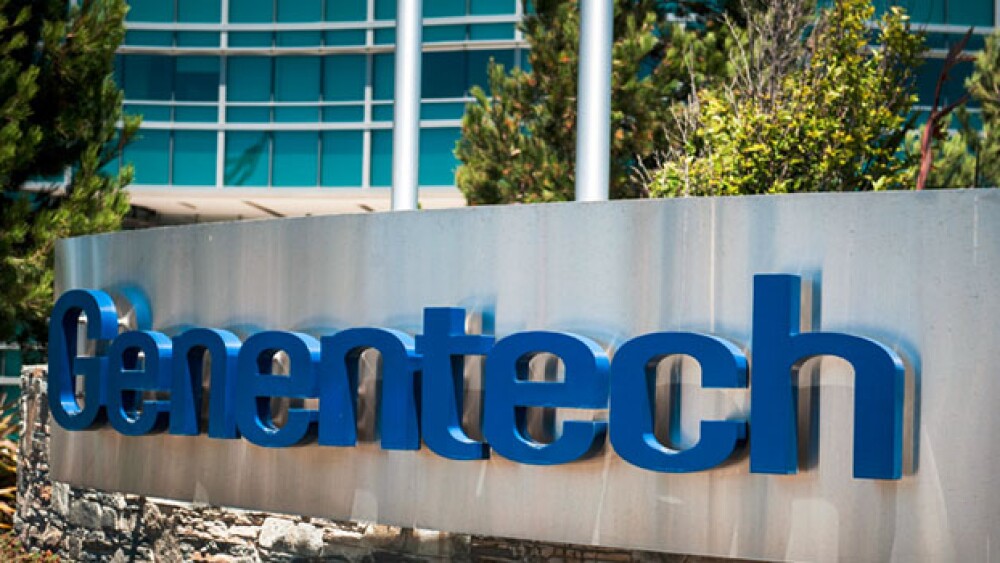Data from the clinical study showed that 40% of people treated with the Polivy regimen achieved a complete response.
South San Francisco-based Genentech’s blood cancer drug Polivy earned an accelerated approval from the U.S. Food and Drug Administration (FDA) due to the complete response rate shown during clinical trials. This marks the fifth blood cancer drug approved for Genentech.
Polivy (polatuzumab vedotin-piiq) is a first-of-its-kind anti-CD79b antibody-drug conjugate (ADC) used in combination with bendamustine plus Rituxan (rituximab) for people with diffuse large B-cell lymphoma (DLBCL) whose disease returned after or did not respond to multiple treatment regimens. Polivy, which was also granted Breakthrough Therapy designation, binds to the CD79b protein, which is only found on B cells, then releases the chemotherapy drug into those cells. The ADC technology used in Polivy was developed by Seattle Genetics and licensed to Genentech.
Approval is based on the Phase Ib/II GO29365 study, which showed improved clinical outcomes for people with relapsed or refractory DLBCL compared to a commonly used regimen. The FDA’s Accelerated Approval Program allows conditional approval of a medicine that fills an unmet medical need for a serious condition. Polivy was approved two months ahead of its August PDUFA date. Further clinical trials are required to verify and describe Polivy’s clinical benefit, the FDA said in its announcement.
Sandra Horning, Genentech’s chief medical officer and head of Global Product Development, said the approval of the Polivy combination medication will provide a novel treatment that is “very much needed” for people with this disease. DLBCL is the most common form of non-Hodgkin’s lymphoma, with nearly 25,000 new cases of DLBCL expected to be diagnosed in 2019. About 30 to 40% of patients suffer relapse. The disease becomes more difficult-to-treat upon multiple relapses or no response to treatment and Polivy combination offers a much-needed option that is available immediately.
“Despite meaningful progress in the treatment of diffuse large B-cell lymphoma, treatment options are very limited when the disease is refractory to or recurrent after multiple regimens,” Horning said in a statement.
The Phase Ib/II GO29365 study was the first and only randomized clinical trial that showed higher response rates over the commonly used combination of bendamustine and a rituximab (BR) in people with R/R DLBCL who are ineligible for a hematopoietic stem cell transplant. Data from the study showed that 40% of people treated with Polivy plus BR achieved a complete response compared to 18% with BR. A complete response means no cancer could be detected at the time of the assessment.
Additionally, the GO29365 study showed that 45% of people on Polivy plus BR achieved an objective response at the end of treatment compared to 18% of people treated with BR alone. Of the people treated with Polivy plus BR who achieved a complete or partial response, 64% had a duration of response (DOR) lasting at least six months as compared to 30% of people treated with BR alone. Also, Genentech noted that 48% of people treated with the combination had a DOR lasting at least a year as compared to 20% of people treated with BR alone.
Adverse reactions included low levels of white blood cells, platelets and red blood cells. Other reactions included nerve damage, fatigue, diarrhea, fever, decreased appetite and pneumonia.
Newsletter Sign Up
Sign up to get the latest life sciences news and updates delivered straight to your inbox.





